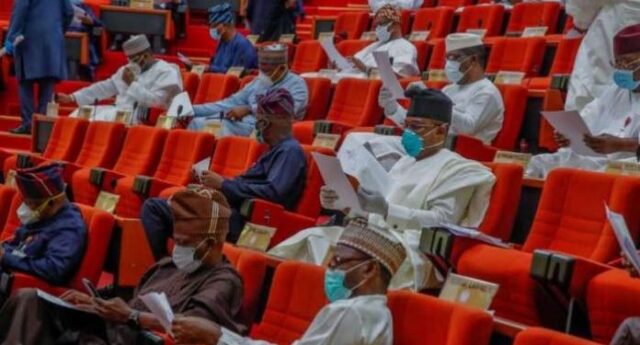
Fred Itua, Sun News
Fourteen years after a first attempt was made to pass the Petroleum Industry Bill (PIB) into law, it again suffered a setback at the Senate, yesterday, as key stakeholders rejected its provisions on host communities’ equity share holding and investment prospects.
Daily Sun learnt that the equity percentage for crude oil production to be allocated to host communities has been largely responsible for the delay in the passage of PIB since 2007.
Former President Umar Musa Yar’Adua had proposed 10 per cent as host community equity, but it was rejected by lawmakers, predominantly those from the north in the 7th National Assembly.
During the reign of former President Goodluck Jonathan,he retained the same 10 per cent, but it was turned down by the federal lawmakers,as being too much a stake to cede to host communities.
In the 8th senate led by Bukola Saraki, it was brought down to five per cent, but sadly, the bill could not be passed into law before the expiration of that Assembly.
The same trend of rejection, resurfaced, yesterday, but this time, it was the host communities, under the aegis of Host Communities of Nigeria Producing Oil and Gas (HOSTCOM), who turned down the 2.5 per cent provided in the current PIB at a public hearing at the senate on the reviewed PIB, insisting it would accept nothing short of 10 per cent.
In a presentation by its national president, Benjamin Style Tams, HOSTCOM declared: “As it concerns the host communities of Nigeria producing oil and gas in Chapter 3; the host communities stand on 10 per cent equity share holding. After 60 years of marginalisation and bearing the brunt of the negative impacts of exploration and exploitation, and today some states have started discovering and enjoying their natural resources, but the producing states and HostCom are not envious of them, therefore our position is sacrosanct.”
The host communities argued that it would be very absurd and economically illogical to deprive it the right to equity share holding in the establishment of the NNPC Limited.
“This quest to take over complete control of all our national assets by a very unpatriotic few has to stop. In the case of the gas flare penalty funds, the host communities who are the direct recipient of the negative effects are the ones to receive the gas flare penalty.
“Regarding the environmental management and sustainable development of the host communities, it is imperative that all laws and polices precedent to the commencement of any active must be conformed with the existing international standards inherent in our submission.”
Oil Producers Trade Section (OPTS) led by Mike Sanger, in its presentation, made a case against the bill for not making serious provisions for investment in the oil and gas sector.
“If the PIB is passed in its current form, it will not meet the government’s objectives of making Nigeria the leading destination for oil and gas investment and the recent scarcity of investment-only $3billion out of $70billion in Africa-will continue. Nigeria faces ever increasing competition for investment and, despite having the largest reserves, only $3 billion out of the $70 billion committed in Africa for projects sanctioned between 2015-2019 were attributed to Nigeria, representing a meagre four per cent,” it said.
Women In Energy Network (WIEN) also raised concern over the proposal in the PIB which stats that “each settler, where applicable through the operator should contribute an amount equal to 2.5 per cent of actual operating expenditure in respect of all petroleum operation.”
President of WIEN and Managing Director of Zigma Limited Mrs. Funmi Ogbue, said the 2.5 per cent was too expensive. “WIEN posits that a total of not more than one per cent consistent with other statutory provisions like the Nigerian local content Act 2010, replace the current figure captured in the PIB.”
President of Senate, Ahmad Lawan, said the National Assembly in its consideration of the piece of legislation, would ensure the speedy passage of the bill into law to guarantee improved revenue earnings for the country.







